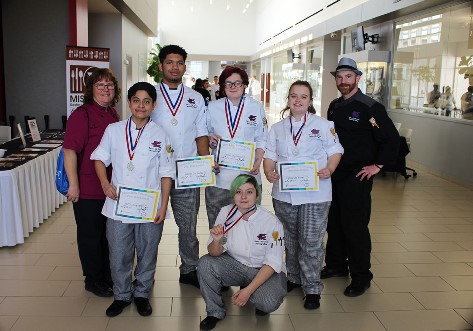


Serving Kansas City (Wyandotte County) Kansas for over 50 years!



by Stephen Koranda, Kansas News Service
Now that Republican leaders have a report they commissioned on school funding, it’s not clear they’ll pursue its recommendations to spend more for better student performance.
Lawmakers continued digging into the numbers Monday and quizzed the study’s authors for the first time since the document was unveiled Friday.
The study suggests lawmakers boost school spending by up to 44 percent over five years. That would mean pouring an additional $2 billion into education. Legislators are searching for ways to respond to a state Supreme Court ruling that says schools aren’t adequately funded.
Some previous estimates of the cost to comply with the court ruling were around $600 million. Those were dwarfed by the latest report.
The study’s main author, Texas A&M University researcher Lori Taylor, said the consultants found a “strong, statistically significant” relationship between spending and student performance.
Taylor said the big funding boost recommended in the study would kick-start student outcomes.
“First, you have to catch up,” Taylor said. “There would need to be some additional funding to bring the students, basically, up to grade level.”
In addition, Taylor told lawmakers that schools were already running quite efficiently. She said their study found inefficiencies in Kansas schools were only around one-third of what they found in some other states.
“That is remarkably good,” Taylor said. “It suggests a very prudent use of the resources.”
Some Republicans are warning of the consequences that would come from a major funding boost for schools.
Republican Senate President Susan Wagle issued a statement Monday saying tax increases or spending cuts would follow if lawmakers send large increases in spending to local school districts.
“Kansans cannot afford what the court is demanding,” she said. “We cannot afford what the new study is recommending.”
There would be no appetite for a tax increase in an election year, said Republican Sen. Gene Suellentrop. He said lawmakers would have to make massive cuts to other state services if they boost spending in the way the study recommends.
“If we pour this kind of money into education without regard to anything else, what will our state look like in 10 years?” Suellentrop asked. “What will the infrastructure look like? What will our health care look like? What will our corrections facilities look like?”
Republican Sen. Molly Baumgardner said the study’s funding increases were aimed at a 95-percent high school graduation rate, which no state has achieved. She said lawmakers probably would not pursue that.
“You talk about a shot to the moon, it is a shot to the moon for every state,” Baumgardner said. “We can come up with some very realistic and appropriate goals for our state.”
Republican Rep. Melissa Rooker is one of the lawmakers who has advocated for more school funding in recent years. She said the study changes the conversation. To her, the question now is whether lawmakers are willing to pay for schools that produce better outcomes.
“What is it we expect from our schools and are we willing to fund that expectation?” Rooker asked. “This identifies the costs of achievement.”
Lawmakers could build a plan that would start to approach the funding targets without busting the state budget, said Democratic Rep. Ed Trimmer. He said some money would be needed up front, but much of the funding could be phased in with a long-term plan.
“Realistically, schools could not absorb that much money over a few years,” Trimmer said.
Trimmer said tying future funding increases to the inflation rate could help forge an agreement.
“I think it’s possible,” he said, “but we don’t have much time.”
The Kansas Supreme Court has ordered lawmakers to approve a new school funding plan by the end of April so the justices can rule before the end of June.
Stephen Koranda is Statehouse reporter for Kansas Public Radio, a partner in the Kansas News Service. Follow him on Twitter @kprkoranda. Kansas News Service stories and photos may be republished at no cost with proper attribution and a link back to the original post.
See more at http://kcur.org/post/kansas-school-funding-report-hand-lawmakers-confront-its-tough-pricey-suggestions

by Kelly Rogge, KCKCC
The Kansas City Kansas Community College culinary arts students have done it again, proving to the Kansas City area that they belong among the top culinary teams.
The KCKCC Culinary Team competed in the 3rd annual WHCA High School Team Culinary Challenge, held by Johnson County Community College last month.
Team members include – Aaron Williams, junior at Leavenworth High School; Brittany Stovall, senior at Bonner Springs High School; Irwing Torres, senior at Washington High School; Alexis Mock, senior at Wyandotte High School and Kayla Jefferson, senior at Schlagle High School.
The students attend the Dr. Thomas R. Burke Technical Education Center and the Pioneer Career Center in Leavenworth through the college’s high school program. The team is coached by Chef Justin Mitchell and Chef Kelly Jenkins.
Fourteen high schools from Kansas and Missouri participated in the competition. KCKCC received a silver medal.
“I have always had an interest in cooking. Since I was little, I would be in the kitchen with my grandma. I just love it,” Stovall said. “I think we all worked together so well because we all have that love of cooking.”
In the culinary competition, each four-person team was responsible for preparing a three-course meal in 60 minutes. In addition, they had 15 minutes to demonstrate knife skills. Teams were not competing against each other, but against a set of standards established by the American Culinary Federation. Teams started with 100 points and received deductions based on errors made.
“I was relieved,” Jefferson said of how the team did at the competition. “I knew we would do well, but I didn’t think we would do that well. I was so proud.”
Chef Kelly said even though there were some stressful situations leading up to the competition, the team worked hard right up to the night before.
“They showed us they could do it, and went right to work doing everything they should. We were very proud of them,” she said. “They really wanted this and wanted to do well. They showed us this is what they wanted.”
Students had the opportunity to try out for the competition team in December and started working with each other in January.
The team created the menu, which included an appetizer of a roasted beat salad, with lemon crème fraiche, olive tuile, bacon, beet chip, goat cheese mousse, roasted walnuts and a garlic vinaigrette; an entrée of stuffed pork tenderloin, stuffing, herb mascarpone, prosciutto, parsnip puree, roasted vegetables, purple cabbage and apple agrodolce and a dessert of chocolate covered cherry with dark chocolate, dark chocolate mousse, almond ice cream, crème anglaise, chocolate ganache and a cherry sphere.

“I wanted to join the team to challenge myself and to see how far my skills would take me,” Mock said. “Everything on our menu complimented each other. The plates were colorful and we stayed focused on what we needed to do.”
Chef Justin said because of the weather and the competition being one week earlier this year, students only had 10 practice sessions to fine-tune the menu rather than the usual 15. He said the team had to make adjustments very quickly in a much faster paced environment than previous years.
“They definitely showed their dedication,” he said of the team. “There was a lot of pressure on them because we do set high standards for this team, and it was so much tougher than any of them thought. But I think when we find students who are passionate and have each other’s back in the kitchen, they rise to the challenge and are pushed to the next level.”
Williams said he wanted to join the culinary arts team to improve how he works with people in the kitchen. He said he was pleased with how the team came together in such a short period of time.
“We came in as the underdog. I did not think we would do as well as we did, so it was definitely exciting,” he said. “I like culinary arts because you get to make something that is completely your own. You get to make something that you thought of and only you can do.”
Torres said it was definitely a team effort that led to their success.
“Food brings people together. That is what I think I like most about being in the kitchen,” he said. “This was truly a team effort. We made sure everyone tasted every part of the dish so we could make sure we were doing our best.”